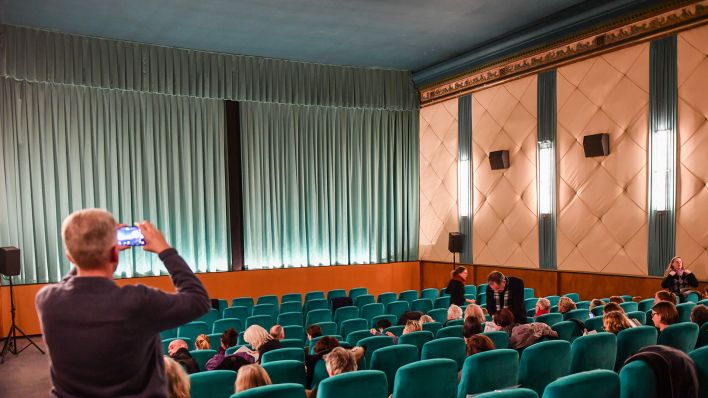The Germans rarely go to the cinema – in the past Corona year an average of 0.5 times. Starting Wednesday, the topic of the Cinema Vision 2030 conference will be how this can change. Caroline Lindenmaier from the industry association of cinema operators will be there.
rbb: What do you expect from Cinema Vision 2030?
Caroline Lindenmaier: First of all, we look forward to the direct exchange with colleagues from abroad and above all, of course, to the input that they bring with them to Berlin. We hope, of course, that thinking outside the box will not go unnoticed. For the long-term success of the conference, it will be crucial which ideas spark us and which tangible initiatives develop from this think tank.
It’s about cinema 2030, that’s in eight years – so not much time left. Where do you think cinema will be in 2030?
We want to think big. We want to think about the audience, about the service, about the ambience, about the event possibilities that the cinema can offer. And that’s where there are many, many starting points. And that’s why we invited highly professional and innovative cinema makers from all over the world to Berlin and want to exchange views on how cinema is made in Paris, Beijing and Brooklyn. What are the trends and topics there that convince the audience. Of course, we are primarily interested in how we can implement this in Germany.
–
Speakers from other European countries will also speak. What can they do better than we do here in Germany?
The German cinemas are by no means international tail light. But on the contrary. Many stores in Germany have been working hard despite the lockdown, have carried out renovation work or revised their range. But the topic of digitization has also experienced a real upswing as a result of the pandemic. We want to start here and see what experiences there are in other countries, for example with digital customer contact? We still have a bit of catching up to do in order to tie young audiences back to the cinema.
During the pandemic, competition from streaming services has intensified. How do you assess the current situation?
It is of course the case that cinema has still not recovered from the pandemic. Compared to the numbers from 2019, in the first half of 2022 we are at a level that is around 60 percent. This applies equally to theaters and operas. The capacities are far from being fully utilized there. But in the cinema – and that encourages us – there are gradual signs of recovery, like now in June. Exactly this positive atmosphere is now the best prerequisite for stepping up a gear and getting international inspiration.
–
The cinema industry is currently also being supported by the federal government because of the pandemic and its consequences with the New Culture program. Is there anything that you would still like to see supported by politicians?
In any case. It is of course about investment programs for the future. Parliament has just increased the future cinema program for this year. This was urgently needed because the program was hopefully oversubscribed after two days. But it will also be about how we manage to get more popular films into the cinemas through funding. There are many starting points where politics can help.
–
Leon Stebe, Inforadio, spoke to Claudia Lindenmaier. This text is an abridged and edited version. You can hear the full interview in the audio above.
–
Broadcast: Inforadio, June 22, 2022, 12:55 p.m
–
–
